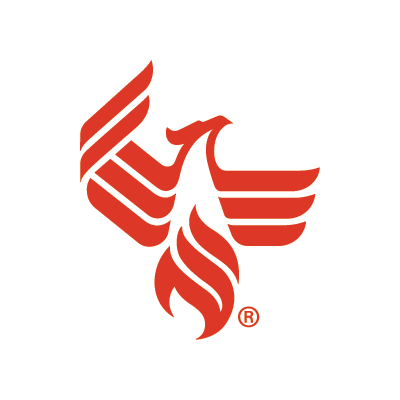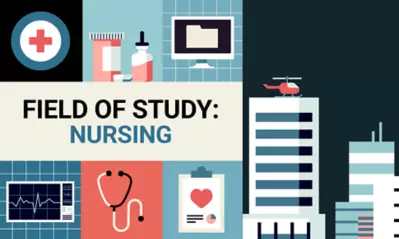Can I get a nursing degree online?
This article was updated on March 31, 2025.

This article was reviewed by Raelene Brooks, Dean, College of Nursing.

Once a nurse or professional in the healthcare field begins their career, they may find it difficult to make time outside of work to pursue traditional education pathways. Moreover, limited availability to pursue an education can make enhancing a career difficult. However, registered nurses looking to expand their opportunities have the option to pursue bachelor’s and master’s degrees in nursing online.
Pursuing a nursing degree online
Earning a nursing degree online may be a great avenue toward enhancing a career as a registered nurse or nurse practitioner. Whether you’re considering a bachelor’s degree, master’s degree or doctorate online programs can help to fit into students’ busy lives, potentially saving time and money.
A Bachelor of Science in Nursing or Master of Science in Nursing degree can help enhance skillsets and potential career opportunities. Let’s take a deeper dive into some of the available online nursing degrees.
Bachelor's degree programs for nursing/RN to BSN
Registered nurses looking to expand their skill set may want to consider a Registered Nurse to Bachelor of Science in Nursing degree (RN to BSN) program. For instance, this educational training can help students develop their critical thinking and clinical judgment, apply leadership and management skills, and work in a community or public health setting. Additionally, many hospitals today, particularly those with Magnet designation, require nurses to have earned a BSN.
Master's degree programs for nursing
Several possibilities for master's nursing degrees online include:
- MSN/Informatics
- Master of Science in Nursing/Nurse Education (MSN/Nurse Education)
- MSN/Family Nurse Practitioner
- Master of Science in Nursing/Nurse Administration (MSN/Nurse Administration).=
A Master of Science in Nursing with a concentration in Informatics (MSN/Informatics) or a Master of Science in Nursing/Family Nurse Practitioner (MSN/Family Nurse Practitioner) might be excellent options for nurses seeking to broaden their skills as clinicians.
These specialties provide diverse areas of concentrations and skills as outlined below.
Informatics
An MSN/Informatics instructs registered nurses how to manage clinical information (including patient charts and records). Furthermore, they also learn how to implement data privacy protections and track staff productivity.
Family Nurse Practitioner
Working as a family nurse practitioner (FNP) may be a good career fit if a clinical environment is more up your alley. There, you will provide and manage the healthcare of patients and populations. With an online FNP degree, you can diagnose and treat illnesses in patients, across the lifespan, from children to adults.
Nurse Administration or Nurse Education Programs
Nursing students looking to lead the nursing staff of a hospital or private medical clinic might want to consider an MSN/Nurse Administration degree. Or for those students who see themselves more as teachers eager to train the next generation of successful nurses, a Master of Science in Nursing with a concentration in Nurse Education might be something they want to consider.
Career options and salaries with a bachelor’s degree
After obtaining a nursing degree online at the bachelor’s level in a healthcare program, a graduate can often launch into a rewarding career. For instance, many find positions in hospitals, clinics, private practices and assisted living facilities. Others set up in private practice and/or work in clinics, hospitals or even corporate offices, as a service to employees.
As of May 2023, registered nurses earned between $63,720 and $132,680, with a median wage of $86,070, according to the U.S. Bureau of Labor Statistics (BLS).
Salary ranges are not specific to students or graduates of University of Phoenix. Actual outcomes vary based on multiple factors, including prior work experience, geographic location and other factors specific to the individual. University of Phoenix does not guarantee employment, salary level or career advancement. BLS data is geographically based. Information for a specific state/city can be researched on the BLS website.
Career options and salaries with a master’s degree
Graduates with a master’s degree in the healthcare field will be prepared to compete for advanced practice roles. Oftentimes, these are not available to graduates of a Bachelor of Science in Nursing program.
How long does it typically take to get a degree in nursing?
According to BLS, registered nurses "usually take one of three education paths: a bachelor’s degree in nursing, an associate degree in nursing or a diploma from an approved nursing program. Registered nurses must be licensed."
On average, a bachelor’s degree in nursing takes approximately 2.5 to 4 years to complete. However, registered nurses with an Associate Degree in Nursing may be able to transfer credits and earn their BSN in approximately 14 months. A Master of Science in Nursing degree can take from 21 months to three years to complete.
Choosing a nursing degree online program
Whether you’re looking to start out with a Bachelor of Science in Nursing or are thinking of pursuing a Master of Science in Nursing, University of Phoenix offers a undergraduate, graduate and doctoral nursing degree online programs to help fit a busy life.
Additionally, for licensed RNs with an Associate Degree in Nursing who want to earn their degree faster, the University offers an RN to Bachelor of Science in Nursing (Competency-Based) degree.

ABOUT THE AUTHOR
Brian Fairbanks is a freelance writer with a background in SEO content creation and blog article development

ABOUT THE REVIEWER
Dr. Raelene Brooks, dean of the College of Nursing, has been a registered nurse for more than 25 years and practiced extensively in the areas of ICU, trauma and critical care. Her publications include a focus on nursing education, critical care, and organizational wellness and engagement. She is a leader in creating, guiding and launching innovative curriculum.
This article has been vetted by University of Phoenix's editorial advisory committee.
Read more about our editorial process.



